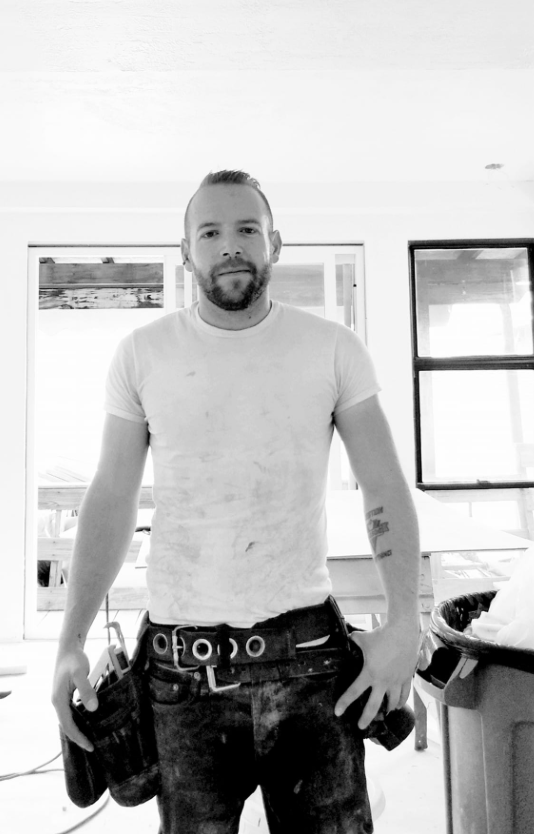Well, here we are—one full year clean.
Part of me is a little surprised by the fact that I made it here. You see, when I showed up at rehab a year ago, I was what most would have called a lost cause—and I am not speaking in hyperbole.
One year later and I find myself looking at a totally different man in the mirror.
This was no easy feat, as even in early sobriety, my life as a whole was still in complete chaos. And despite it all, I made it this far. I wanted to share some of what I learned this year in the hopes that it will help anyone on their journey. As they say, take what you need, and leave the rest. Good luck, friends.
1. There is no singular cure.
Throughout my stays at various treatment centers, I would frequently run into a sort of treatment paradox. The staff would tell me that my recovery was in my hands, and it was my choice to find the right path but in the same breath tell me that the 12 steps were the only way to stay clean—and that’s just not true.
Now, before I go any further, I want to point out that I’m not hating on the program. On the contrary, I think it’s great and has been incredibly beneficial in helping millions of people stay sober. And I would encourage anyone to go to them should they feel they need to.
At the same time, it’s not the only way to stay clean. And I think that dissuading people from exploring their options in recovery is dangerous. This is not and has never been an exact science.
Addicts, as a rule, share many of the same tendencies and behaviors, yes. But we are also so incredibly diverse that it’s impossible for one single plan to work with all of us. That’s just not realistic.
Case in point, while most recently in treatment, I would often ask the staff as a whole what they thought was the best way to achieve sobriety. All of them gave me different answers. These are all people who are professionals in the field of addiction treatment, and many would come up with completely different answers to my questions. Hence, I never really got “the answer” from them, but then again, I was asking the wrong questions.
I had been asking, “Which program do I need to use to get sober?”
When I should have been asking, “What parts of each school of thought can I combine and use together?”
I don’t base my recovery on one singular program, theory, or treatment. I take what I need from all of them, and I also add on my own. I attended 12-step meetings from time to time; I go to church on occasion. I was introduced to different schools of philosophical thought (such as existentialism), which have changed my way of thinking about everything.
I write, read, and learn. I surround myself with incredible and positive people. I take whatever helps me from anything I can and put it all together to create my own recovery plans. I personally think that an open-minded approach to all of this is probably the best way to go, but that’s just me.
The last big part of my recovery plan is also what I think to be incredibly important, which is surrounding yourself with people who get it. 12-step programs have a lot to say about finding fellowship, and they are 100 percent spot on.
I’ve found that one of the biggest parts of what helps to create true happiness is finally feeling as though you are understood. A lot of us spend years and years searching for that feeling. I know I did. My advice: wherever you happen to find that, work hard to hold onto it. It’s well worth the effort.
This leads me to my next point:
2. Surround ourselves with people we aspire to be like.
A lot of things in my life have changed in this past year. But none so drastic as picking up and moving to a different state, hours away from everyone and everything I had known. A drastic decision, and also one of the most beneficial, for numerous reasons. Namely, I was able to completely shape and change my social circle in the best ways.
Starting over gave me the chance to pick and choose who I want to associate with. And since I had the chance, I ran with it. Everyone in my life, from my boss to my co-workers, my friends to my beautiful girlfriend, all feel as though they belong there, for a variety of reasons, but mainly because I aspire to be like all of them in some way.
All of the people closest to me are some of the best that I have ever had the pleasure of meeting. And it’s not just that they are objectively good people; it’s that they have great qualities, goals, and the determination to see them through. They all have attributes that I want to possess. By associating with them, learning from them, and practicing these positive qualities myself, I can eventually have them too. This is something I have in the front of my mind every day, and it has been serving me well.
The unfortunate side effect of choosing my company so carefully is that I had to more or less cut some people out of my life. And it’s not because I didn’t like them, or they wronged me in some way. It’s because their lifestyles and goals were not even close to matching my own.
And I have the foresight to recognize the potential dangers to my sobriety that associating with them will present. So I avoid those potential pitfalls by not allowing them to exist in the first place. And I have found that choosing our company carefully is one of the best ways to do that.
3. We have to want it.
People have asked me what I thought to be most important about keeping our sobriety after we earn it. And I think that they are often surprised by how deceptively simple it sounds. My advice?
“We have to want to be sober more than we want to use.”
When I look back to when I started abusing any substance I could get my hands on, I realized something; it had always been my own choice to pick up those drugs—without fail.
Of course, I was an expert at justifying my use and finding any reason why I needed to use it. But in reality, it was always my choice. Think of it this way:
“Has anyone ever held a gun to your head and said do those drugs or you are dead?”
Every single person I’ve asked that question to (up to this point) has answered “no.” That’s a bit of an extreme example, but it proves my point. Pretty much anytime we fall back into using drugs or alcohol, it is by personal choice. We want to use in those moments. It just becomes an unpleasantly aggressive want after a while, so we associate it with a need.
“I need these drugs to make it through this terrible day.”
No, we want them, so we don’t feel like sh*t anymore.
All of this may sound like some kind of an oversimplification, but it is the truth. And it was right in front of my face the whole time. When I finally worked hard to create the life I wanted, I worked even harder to keep it that way. In doing that, I found the desire to stay clean, so I have been.
I have one year clean, which is fantastic, yes. But my sobriety is a fragile and delicate thing—one which requires constant care, vigilance, and attention to stay whole.
The only person on Earth who can guarantee its continued existence is me. So I do my best to continue to treat it as the beautiful gift that it is.
~











Read 15 comments and reply